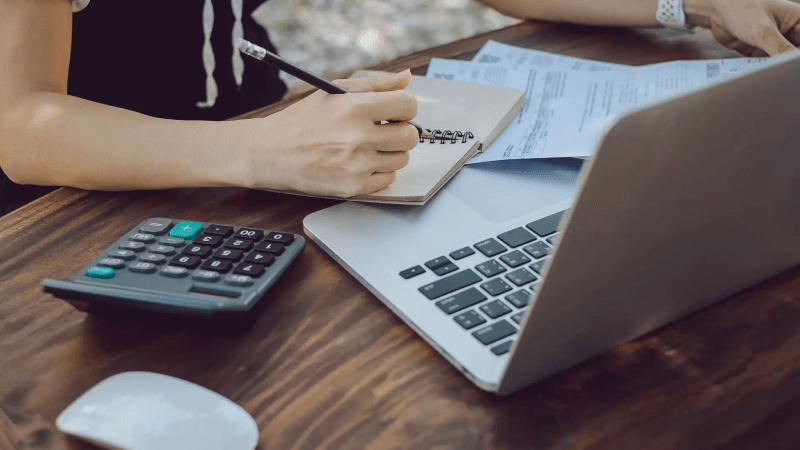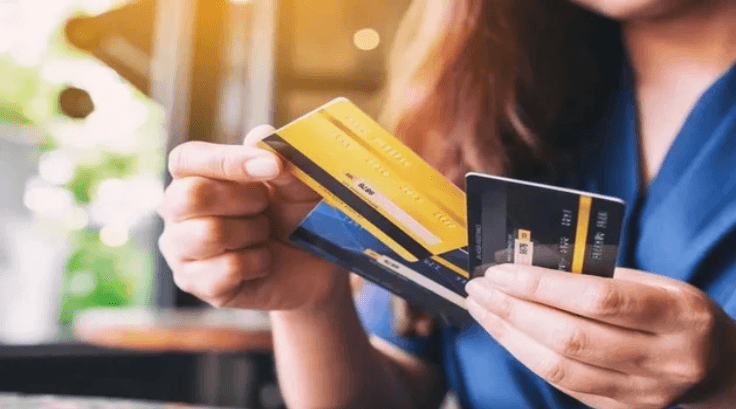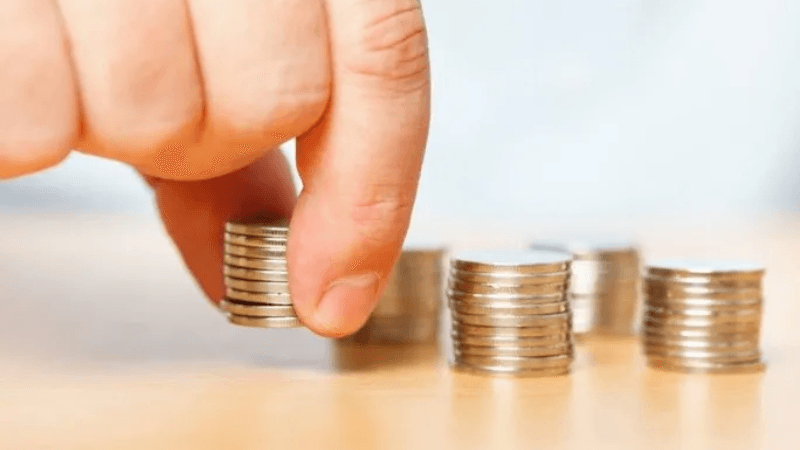
In this article we will provide you with some useful tips for creating an effective and easy-to-follow budget. You will see that, with a few adjustments to your lifestyle and financial habits, you will be able to manage your personal finances with greater ease and peace of mind.
Step 1: Know your income and expenses
The first thing you need to do to create an effective budget is to know what your income and expenses are.
For this, it is important that you have a clear list of all the income you receive in a month, whether it is from your job, business or investments. Likewise, you must be clear about your monthly fixed expenses, such as your housing rent, utilities, transportation, food and others.
You should also take into account the variable expenses that you make during a month, such as the purchase of clothes or any other type of need that arises during that period.
Once you have made this detailed record of your income and expenses, you will be able to establish a solid base for the creation of your personal budget.
Income
The first step to effective budgeting is to be clear about how much money is coming into your account each month. This includes salaries, additional income, rent or any other source of income.
It is important to be realistic in estimating your monthly income, and not count on bonuses or one-time income that is not consistent.
Once you have a clear idea of your monthly income, you can begin to plan how to allocate it into different expense categories.
Expenses
The second part of your budget should focus on your expenses. Divide your expenses into two categories: fixed and variable.
- Fixed expenses: those that you know you will have to pay every month, such as rent, utilities (water, electricity, gas), car payment, etc.
- Variable expenses: those that can vary from month to month, such as groceries, entertainment, travel, etc.
It is important to be realistic when estimating your variable expenses. If you tend to spend a lot of money on entertainment or online shopping, be sure to include that expense in your budget. The idea is to have a complete picture of your financial situation so you can make informed decisions.
It's also important to factor in annual or semi-annual expenses, such as taxes or school tuition. Divide these annual expenses by the twelve months of the year and add them to your monthly budget so you don't have any unpleasant surprises later on.
Once you've divided your income and expenses into clear categories, subtract your total expenses from your total income to see if you're spending more than you earn. If this is the case, you'll need to look for ways to reduce your expenses or increase your income.
Fixed expenses
Fixed expenses are those expenses that must be paid every month and do not vary significantly. Examples of fixed expenses are the rent or mortgage, car insurance, telephone or internet bill, and others. It is important to take these expenses into account when making a budget since they are the ones that have the most weight in our monthly economy.
To include fixed expenses in your budget, make a list of all these monthly payments and add them up. Be sure to also include other fixed expenses such as loan or credit card fees.
Once you have your total fixed expenses, divide them by your monthly income to find out what percentage of your income goes to these payments each month. If this percentage is too high, you might consider reducing some expenses or looking for ways to save on them.
Variable expenses
These are expenses that can vary from month to month, such as food, transportation and entertainment. To get an idea of how much you spend on these items, keep a detailed log for 1 or 2 months. Then, allocate a monthly budget for each category and try not to overspend. If you find yourself spending more than you anticipated, it's time to look for ways to reduce those expenses.
It's important to remember that variable expenses can have a significant impact on your overall budget. So, don't ignore them and try to keep them under control to meet your long-term financial goals.
Wasteful expenses
Superfluous expenses are those that are not necessary to meet our basic needs. Often, these expenses are impulsive and unplanned, which can negatively affect our budget.
Examples of wasteful spending include impulse purchases, eating out, subscriptions to non-essential services and expensive entertainment.
To reduce your wasteful spending, it is important to set a budget and stick to it. You can also look for cheaper alternatives to satisfy your needs and wants, such as cooking at home instead of eating out.
Necessary expenses
Necessary expenses are those that you cannot avoid and are indispensable to your daily life. These can include:
- Food
- Housing
- Transportation
- Insurance
- Home and vehicle maintenance
- Health services
- Debt payments
It is important to identify what your necessary expenses are and how much money you are allocating to them in your budget. If you don't have enough to cover them, you will have to look for ways to reduce other expenses in order to do so.
Step 2: Prioritize your expenses and adjust them if necessary
Once you have a clear idea of your income and expenses, it is important to prioritize your expenses and adjust them if necessary. This means identifying which expenses are essential (such as rent, utilities and food) and which are non-essential (such as entertainment, impulse purchases and travel).
If you find that you are spending too much on non-essential expenses, it may be necessary to make adjustments to your budget to reduce these expenses. Consider ways to save money, such as looking for deals or discounts, buying generic products instead of name brands, or simply cutting back on these unnecessary expenses.
Remember that prioritizing your expenses also means setting aside a portion of your budget to save or invest in important long-term things, such as a house, an emergency fund or your retirement.
In summary, identify your essential and non-essential expenses, adjust your budget to reduce non-essential expenses if necessary, and set aside a portion of your income to save and invest for the future.
Identify non-essential expenses
Once you have identified your fixed and variable expenses, it is important to review which expenses are non-essential. These are the ones where you can reduce or eliminate spending without significantly affecting your quality of life.
Some examples of non-essential expenses can be eating out, subscriptions to services that you do not use frequently, impulse purchases, among others. It is important to identify these expenses and set a limit or try to eliminate them completely so you can allocate that money to more important things or save to reach your financial goals.
Reduce or eliminate unnecessary expenses
Once you have recorded all your income and expenses, it's time to take a closer look at which expenses you can reduce or eliminate altogether. This will allow you to have more control over your personal finances and save money to reach your financial goals.
You can start by identifying those expenses that are not essential or that you could reduce without affecting your quality of life. For example, you could evaluate whether it is necessary to subscribe to so many video streaming services, reduce your eating out or avoid buying brand-name clothes.
It is also important to analyze your expenses in bills such as electricity, gas, water and internet. You could compare prices with other providers and negotiate lower rates with your current provider.
Remember that by reducing or eliminating unnecessary expenses, you will be freeing up resources for important financial goals such as saving for a house, paying off debt or investing in education.
Choosing between cheaper or free options
One of the most effective ways to save money is by choosing cheaper or free options. For example, instead of paying for a gym, you can exercise outdoors or at home with free online videos. Instead of buying coffee at an expensive store, you can brew it at home and take it with you.
You can also save money on groceries and staples by buying generic or sale brands. Compare prices and read labels to find products that are similar to brand-name products, but at a much lower cost.
Another way to save money is to take advantage of special offers and promotions. These can include discounts on event tickets, restaurant coupons and special offers at online stores.
When choosing between cheaper or free options, be sure not to sacrifice quality. Sometimes, the cheaper option can end up being more expensive in the long run if you have to replace it frequently due to poor quality. Do research and read reviews before making a decision.
Step 3: Create a monthly budget and stick to it
Once you have identified your income and expenses, it is important to create a monthly budget to effectively plan your finances. A budget will allow you to know how much money you have available to spend in each category and avoid spending more than you can afford.
To create your monthly budget, you can use an Excel spreadsheet or a budgeting application. Divide your expenses into categories such as housing, transportation, food, entertainment and savings. Be sure to include all fixed expenses such as rent or mortgage, car insurance and utilities.
After you have recorded your fixed expenses, set a limit for each category based on your monthly income. If you realize you've been spending more than you should in any category, adjust your budget to reflect that.
It's important to follow your budget as closely as possible. Try not to spend more than you have set for each category and regularly review your spending to make sure you are on track.
Remember that a budget doesn't have to be rigid; you can adjust it as needed. But it is a valuable tool to help you reach your long-term financial goals.
Divide income into priority spending categories
Before you start spending your money, it's important to establish the priority spending categories in which you're going to invest your income. The basic categories are usually:
- Fixed expenses: those that are mandatory and that you have to pay month to month, such as rent, mortgage, car insurance or cell phone bill.
- Variable expenses: those that change from month to month and can be seasonally variable, such as leisure expenses, travel or whims.
- Savings: a portion of your income should be earmarked for savings. It is important to establish a fixed amount that you can save each month to maintain good financial health.
Once you have established these categories, it is important to prioritize your expenses. Fixed expenses and savings should always be a priority over variable expenses. It is always better to save a little extra each month to have a financial cushion in case of emergencies.
Emergency reserve and long-term savings
An important part of any effective budget is the creation of an emergency reserve. This reserve is a fund of money that is set aside exclusively for unforeseen situations, such as illness or job loss. It is recommended that this reserve contain at least three to six months of monthly salary.
In addition, it is important to plan for the long term and start saving for retirement. There are various options for doing so, such as pension plans or long-term investment funds. It is advisable to seek financial advice before making any decisions.
Remember that the main objective of budgeting is to control your income and expenses in order to make better financial decisions in the future.
Necessary fixed expenses
Necessary fixed expenses are those that we must pay month to month and cannot avoid. Among them are:
- Rent or mortgage: This is the amount we pay to live in our house or apartment. This is the most important item in our budget.
- Utilities: These include water, gas, electricity and telephone services. Although sometimes we can reduce the consumption of these services, there will always be a minimum amount that we must pay.
- Food: This is a necessary fixed expense since we all have to feed ourselves in order to live. Although we can adjust the amounts we spend on each food item, it is important to include this item in our budget.
- Transportation: This includes expenses related to the daily commute to work or school, as well as expenses related to car maintenance or public transportation. Again, it is difficult to avoid this expense, so we must include it in our monthly budget.
It is important to be realistic when estimating these expenses and try to save in other budget items in order to be able to meet these necessary fixed expenses and not fall into unnecessary debt.
Variable expenses
Variable expenses are those that change every month and are not necessary to maintain our standard of living. They include things like going out to eat, going to the movies, or buying new clothes. These expenses can be fun, but they can also jeopardize our financial stability.
To properly manage variable expenses, it is important to set a maximum amount that can be spent each month on entertainment and clothing purchases. This amount should be realistic and should take into account other financial obligations such as bill payments and savings.
A good idea is to use an expense tracking tool to keep track of how much has been spent on entertainment and clothing purchases each month. This will help us make informed decisions about our future spending.
It is important to remember that variable expenses should not be the priority in our budget. Instead of spending all of our money on entertainment and clothing purchases, we should make sure we are meeting our basic needs and saving for the future before enjoying the luxuries of the present.
Adjust the budget according to changing needs during the month
It is important to remember that a budget is not a fixed and immovable tool. During the month, unexpected needs or additional expenses may arise that were not originally anticipated. Therefore, it is important to be willing to adjust the budget to accommodate these needs.
One way to do this is to regularly review the budget and compare it to the actual expenses for the month up to that point. This will identify areas where more funds have been spent than planned and where there is still room to spend more.
Based on this information, adjustments can be made to the budget to reallocate funds to ensure that all important needs are being met. For example, if food expenses have been higher than expected, it may be necessary to reduce the amount allocated to entertainment or personal purchases.
It is also important to be realistic about the budget itself and be willing to make adjustments when necessary. If circumstances change significantly, such as a reduction in income or an increase in regular expenses, it may be necessary to reevaluate the entire budget and make major changes.
Ultimately, effective budgeting is not just about creating a solid plan at the beginning of the month and keeping it unchanged. It's about being flexible and willing to adapt as new financial challenges and opportunities arise.
Step 4: Use technology tools to track your budget
Once you've created your budget, it's important to track it to make sure you're sticking to the plan. Fortunately, there are several technology tools you can use to help you in this process. Some options include:
- Mobile apps: There are many mobile apps that allow you to track your spending in real time. Some popular ones include Mint, PocketGuard and YNAB.
- Spreadsheets: If you are more traditional, you can use spreadsheets such as Excel or Google Sheets to keep a detailed record of all your income and expenses.
- Online banking services: Many banks offer online banking services that allow you to view your transactions and balances in real time. These services often have built-in budget tracking tools.
Whichever tool you choose, be sure to periodically review your budget and make adjustments if necessary. This way you can ensure you meet your long-term financial goals.
Budgeting Apps
A practical and easy way to keep track of your personal finances is through budgeting applications. These tools allow you to enter your income and expenses, and show you graphs and reports so you can have a clear view of your financial situation.
Some of the most popular budgeting apps are:
- Mint: This app is free and allows you to connect your bank accounts and credit cards so you can see all your financial movements in one place.
- You Need A Budget (YNAB): With this app, you can create a personalized and detailed budget, and it also offers online courses on personal finance.
- PocketGuard: This application shows you how much money you have available to spend each day, week or month after covering your fixed expenses and savings.
- Personal Capital: In addition to allowing you to make a budget, this app also offers personalized financial advice based on your current financial situation.
Whichever application you choose, remember that the most important thing is to use it regularly and be honest with yourself when entering your expenses. Only then will you be able to have an effective budget that will help you achieve your financial goals.
Spreadsheets
Spreadsheets are a very useful tool to keep track of your expenses and income. You can use programs such as Microsoft Excel or Google Sheets to create a customized template that suits your needs.
In the spreadsheet, you can create different categories to classify your expenses, such as rent, food, transportation and entertainment. You can also include a column to record your monthly income.
Once you have recorded all your expenses and income, you can use formulas in the spreadsheet to automatically calculate your total expenses and remaining balance. This will help you have a clear idea of where your money is going each month and help you make informed decisions about how to best manage your personal finances.
Conclusion
In summary, budgeting effectively for your personal finances takes time, discipline and patience. But once you've established it and follow it regularly, you'll see how your money works for you instead of the other way around. Remember, it's not just about saving money, it's about taking control of your finances and securing a solid financial future. Start today!






